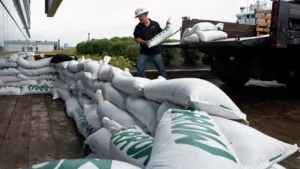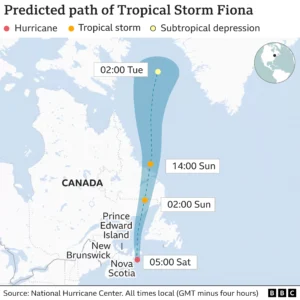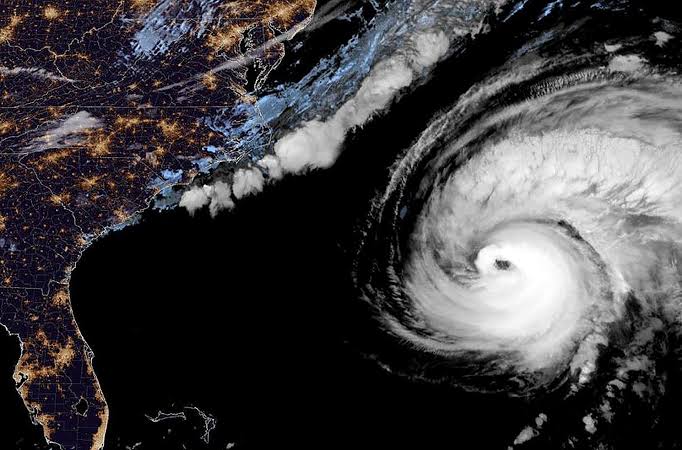Hundreds of thousands of people are without power as Hurricane Fiona began to batter Canada’s Atlantic Coast.
Parts of Nova Scotia, Prince Edward Island and New Brunswick are experiencing torrential rain and winds of up to 148 km/h (92 mph).
The Canadian Hurricane Centre warned ahead of its arrival that Fiona could be “a historic, extreme event”, with expected power cuts and flooding.
At least eight people died when Fiona cut through the Caribbean.
“It’s going to be a bad one,” Prime Minister Justin Trudeau said on Friday. “We encourage everyone to stay safe and to listen to the instructions of local authorities and hang in there for the next 24 hours.”

“We have been through these types of events before, but my fear is, not to this extent,” said Amanda McDougall, mayor of Cape Breton Regional Municipality.
“The impacts are going to be large, real and immediate.”
Severe hurricanes in Canada are rare, as storms lose their energy once they hit colder waters in the north and become post-tropical instead. But pressure in the region is predicted to be historically low as Hurricane Fiona hits, making way for a heavier storm.
Nova Scotia was last battered by a tropical cyclone in 2003 with Hurricane Juan, a category two storm that killed two people and heavily damaged structures and vegetation.
Meteorologist Bob Robichaud warned on Friday afternoon that Fiona will be bigger than Juan, and stronger than 2019’s Hurricane Dorian, which also reached the shores of Nova Scotia.

“It is certainly going to be a historic, extreme event for Atlantic Canada.”
Fiona had already wreaked havoc on Puerto Rico and the Dominican Republic earlier this week, with many still left without power or running water.
Florida also faces a hurricane threat as tropical storm Ian strengthened as it moved over the Caribbean on Saturday. It could approach Florida early next week as a major hurricane.
Ian’s projected path takes it just south of Jamaica, over western Cuba and into Florida, the hurricane centre said.
Florida Keys and South Florida could be hit by heavy rains on Monday, according to forecasters.
Florida Governor Ron DeSantis declared a state of emergency on Friday, freeing up funding and emergency services in advance of the storm.
BBC


